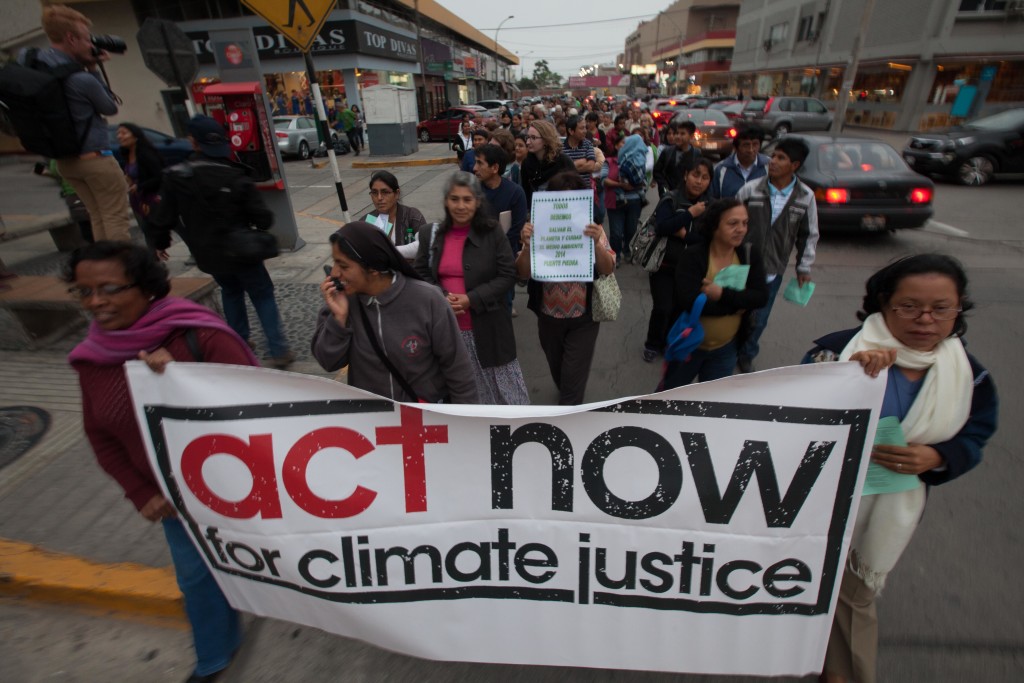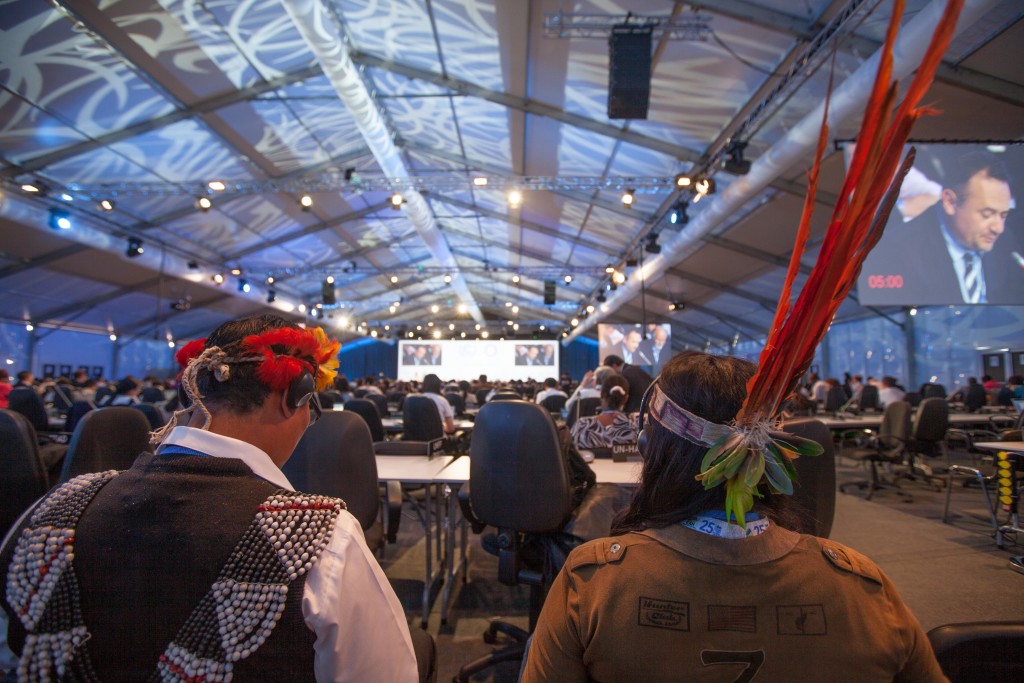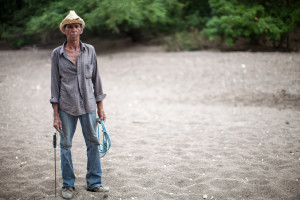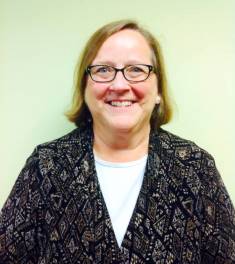Lutherans are taking action across the country! Below you will find our monthy State Advocacy Newsletter. Share with your friends!
A New Legislative Session: The 2015-2016 session of the California Legislature began Dec. 1, with new members comprising over one-quarter of the 120-member body. Bills getting attention from LOPP-CA for early analysis and possible support include a raise in the minimum wage to $13, expansion of preschool to serve all children from low-income families, eligibility for Covered California (health insurance exchange/Obamacare) regardless of immigration status, and post-2020 greenhouse gas reduction goals. LOPP-CA is part of California Delivers (on its carbon reduction goals), which will be opposing new legislation to stop the Jan. 1 scheduled inclusion of gasoline and diesel fuel in the existing the cap-and-trade program, which has already generated over $700 million for reinvestment in pollution-impacted disadvantaged communities, transit, clean-fuels, etc.
Embracing the Executive Order on Immigration: On the Monday before a Friday attack on the Mexican Consulate and other targets in Austin, TX, by a right-wing extremist linked to the white supremacist Phineas Priesthood, LOPP-CA Director Mark Carlson and Sacramento Conference Dean Rev. Jason Bense participated in a press event at the Sacramento Mexican Consulate supporting President Obama’s executive order on immigration. Consul General Carlos González Gutiérrez listed specific actions that the consulate will take to support the process, and warned against scam artists seeking to exploit this opportunity for families to come out of the shadows. LOPP-CA shared the ELCA Conference of Bishops’ statement, the LIRS response to the Order, and a compelling story of congregational assistance for undocumented families in a mountain resort community.
———————————————
Colorado
Peter Severson, Lutheran Advocacy Ministry – Colorado
This month, the Policy Committee of Lutheran Advocacy Ministry-Colorado met to discuss and approve the LAM-CO Policy Agenda for 2015. The agenda is focused on hunger, poverty reduction, and affordable housing. Among the agenda items is supporting an increase to the state minimum wage, which is currently set at $8.00/hour for 2014. The rate is below the self-sufficiency standard for one adult in Colorado, and well below the standard for one adult with a preschool-age child. Other items on the agenda include: improving access rates for SNAP and TANF benefits and adding incentives to the Colorado Housing Investment Trust Fund to encourage developers to build more affordable housing.

In November, LAM-CO hosted an adult forum at Our Savior’s in Greeley and also visited the campus ministry at University of Northern Colorado. Director Peter Severson preached at the Thanksgiving service for the Prairie Parish, a collection of five congregations on the eastern high plains, held at Eben Ezer Lutheran Care Center in Brush. Peter was also present with colleagues at the national ELCA State Public Policy Office convening in Baltimore.
LAM-CO recently hosted Rep. Dominick Moreno of HD-32, the district encompassing our neighborhood, in a meeting at the Rocky Mountain Synod office. Peter Severson, Bishop Jim Gonia, and other synod staff joined Dominick for a discussion of issues facing the neighborhood and insights into the upcoming legislative session. Rep. Moreno will serve as Assistant Majority Leader in the Colorado House of Representatives for the upcoming session, which begins January 7, 2015.
———————————————
Illinois
Jennifer DeLeon, Lutehran Adovcacy – Illinois
Savings Program: We are happy to report that last week one of the bills we have been working on was approved by the Illinois General Assembly; SB2758 will give millions of private sector workers in our state the opportunity to save their own money for retirement by expanding access to employment-based retirement savings accounts. More than 2.5 million workers do not have access to a retirement savings account through their employer, according to a report from the Woodstock Institute. The report found lack of access is most serious for low-wage workers, of whom 60 percent lack access, but even for workers making $40,000 or more, 49 percent do not have access to an employment-based retirement savings plan.
Immigration: We have joined the Illinois Coalition for Immigrant and Refugee Right’s “IL is Ready Campaign” to educate and prepare the immigrant community on the administrative relief for undocumented immigrants. Our first information workshop was held this Sunday at Sagrado Corazon Lutheran church in Waukegan. Thank you to Pastor Hector Carrasquillo Director of Latino Ministries for the invitation. To request an information workshop contact Jennifer.deleon@lssi.org to receive updates and learn more about Il is ready sign up here!
———————————————
Minnesota
Tammy Walhof, Lutheran Advocacy – Minnesota
EPA Clean Power Plant Plan: Lutheran Advocacy: Minnesota collected “photo messages” for the EPA and the Minnesota senators in support of the EPA Clean Power Plant Plan. Some of the people participating agreed to allow their photos to be used for media. Some of those photos, with street addresses removed, are available here!
Clean Energy & Jobs Campaign: Given significant changes in the MN House of Representatives following the election, campaign members, including LA-MN, are trying to rework the message points for the Renewable Energy Standard and Energy Efficiency Standard to make them more rural, ag, and small business-focused.
Homes for All Coalition: As part of the Community Engagement Team, LA-MN is involved with some of the other partners in developing some creative tools around which groups & churches can organize and educate. LA-MN Director, Tammy Walhof, and others on the team originally tried to remake a game like Monopoly or Life, but those ideas were dropped upon learning of challenges that groups in other states had with copyright issues. The focus is now leaning toward the development/rewrite of a song & music video.
Payday Lending: Many groups that are part of the Fairness in Lending Coalition, including LA-MN, sent a letter to Minnesota’s U.S. senators encouraging action at the federal level on Payday Lending. The coalition plans to continue the legislative effort in Minnesota. LA-MN will continue to have it as a second tier issue.
———————————————
New Jersey
Sara Lilja, Lutheran Office of Governmental Ministry, New Jersey
Lutheran Office of Governmental Ministry co-sponsors the Anti-Poverty Summit in New Jersey. Legislatures from both parties, clergy, non-profit organizations and leading policy experts attended a sold out conference on Dec. 4th that was themed, “Changing Attitudes, Changing Laws, Changing Lives.” Rev. Sara Lilja led a standing room only workshop entitled “Community Conversations”, this session was a skill building opportunity that focused on shaping Public Opinion as the beginning place for Advocacy.
Criminal Justice Reform: A bill has just been filed in the Senate (S2588) that would limit the use of Solitary Confinement in New Jersey’s State and Country Jails. LOGM will be working with other coalition partners to have this bill enacted into law.
Earned Sick Days: LOGM is participating in a statewide campaign that will provide Earned Sick Days for all New Jersey Workers. This legislation has passed in 7 municipalities, and now is moving on to the entire State. We will be speaking at a Press Conference this week.
———————————————
New Mexico
Ruth Hoffman, Lutheran Advocacy Ministry – New Mexico
 In early November, Lutheran Advocacy Ministry-NM hosted our annual advocacy conference at St. Timothy’s Lutheran Church in Albuquerque. Almost 100 advocates from around New Mexico attended. A number of Lutherans traveled over 600 miles round trip to participate, coming from Las Cruces and from Alamogordo. All of the current volunteers from the Border Servant Corps, a border ministry of Peace Lutheran Church in Las Cruces, attended. Pr. David Vásquez, currently a campus pastor at Luther College and upcoming president of Pacific School of Religion, was the featured speaker and lead participants in two bible study sessions relating to faith and immigration. Breakout session topics included hunger in NM, the importance of early childhood education, local immigration issues and the 2015 LAM-NM Advocacy Agenda. The conference was attended by many of our ecumenical and interfaith partners, including Presbyterians, Methodists, Roman Catholics, Episcopalians, Unitarians and others.
In early November, Lutheran Advocacy Ministry-NM hosted our annual advocacy conference at St. Timothy’s Lutheran Church in Albuquerque. Almost 100 advocates from around New Mexico attended. A number of Lutherans traveled over 600 miles round trip to participate, coming from Las Cruces and from Alamogordo. All of the current volunteers from the Border Servant Corps, a border ministry of Peace Lutheran Church in Las Cruces, attended. Pr. David Vásquez, currently a campus pastor at Luther College and upcoming president of Pacific School of Religion, was the featured speaker and lead participants in two bible study sessions relating to faith and immigration. Breakout session topics included hunger in NM, the importance of early childhood education, local immigration issues and the 2015 LAM-NM Advocacy Agenda. The conference was attended by many of our ecumenical and interfaith partners, including Presbyterians, Methodists, Roman Catholics, Episcopalians, Unitarians and others.
 LAM-NM director, Ruth Hoffman has been busy attending interim legislative committees as they work toward the 2015 legislative session. The committees are preparing legislation for consideration during the session. Ruth testified at the most recent meeting of the Economic & Rural Development Committee about the Individual Development Accounts program and need for increased funding for that low-income matched savings account program.
LAM-NM director, Ruth Hoffman has been busy attending interim legislative committees as they work toward the 2015 legislative session. The committees are preparing legislation for consideration during the session. Ruth testified at the most recent meeting of the Economic & Rural Development Committee about the Individual Development Accounts program and need for increased funding for that low-income matched savings account program.
———————————————
Pennsylvania
Amy Reumann, Lutheran Advocacy Ministry in Pennsylvania
Access to healthy, affordable food and fair education funding will be top issues for Lutheran Advocacy Ministry in Pennsylvania next year. LAMPa’s policy council and 7 bishops spent a day in early December prayerfully discussing concerns in their communities before adopting an agenda for 2015. The work will be carried out in a capital with divided government following November’s election that saw the nation’s only defeat of an incumbent governor, replacing Republican Tom Corbett with Democrat Tom Wolf. The election also grew Republican margins in the legislature and raised new leadership in both the House and Senate.

Environment: LAMPa launched its creation care work group with a statewide conference call that included Mary Minette from the D.C. advocacy office, sharing areas of interest in state environmental issues, with clean water being identified as a primary concern.
Immigration: Following President Obama’s announcement on immigration relief, LAMPa connected our synods and interested congregations with partner organizations looking for sites to provide information and assistance to immigrants who might be eligible.
Service: Lutherans might expect to be approached by housing advocates to connect on the ELCA “Day of Service” in September. The Center for Community Change recently spotlighted the connection between service and advocacy on the Pennsylvania housing trust fund on God’s work. Our Hands. Sunday. The network urged its members to reach out to Lutherans to add our voices to the work of our hands on behalf of our neighbors struggling with shelter. Read the article here.
———————————————
Virginia
Marco Grimaldo, Virginia Interfaith Center for Public Policy
The Virginia Interfaith Center for Public Policy is working on several bills and policy changes to implementation of SNAP in Virginia. We are working to get a minimum wage bill introduced that would take Virginia up to $10.10 per hour over three years and a bill to make Virginia’s Earned Income Credit at least partially refundable. We are also part of a coalition effort to change the income test for who can qualify for SNAP benefits.
We met this week with faith leaders that are part of the Virginia Council of Churches and the Virginia Interfaith Center who together welcomed First Lady Dorothy McAuliffe to talk about her new role chairing a commission named, “Bridging the Nutritional Divide,” that will help address hunger in Virginia. She announced her push for a pilot program for Breakfast in the Classroom programs in Virginia. Finally, we met with Lutherans from various parts of Virginia as part of Bishop Mauney’s Childhood Hunger Task Force and that work is now underway.
———————————————
Paul Benz, Faith Action Network
 Policy Updates: Faith Action Network’s (FAN) governing board approved our 2015 legislative agenda. Our five “policy buckets” are: Reducing Wealth Inequality (FAN’s lead issue), Forging a Sustainable Biennial Budget, Dismantling the Culture of Violence, Protecting Housing & Preventing Homelessness, and Sustaining Washington’s Environment
Policy Updates: Faith Action Network’s (FAN) governing board approved our 2015 legislative agenda. Our five “policy buckets” are: Reducing Wealth Inequality (FAN’s lead issue), Forging a Sustainable Biennial Budget, Dismantling the Culture of Violence, Protecting Housing & Preventing Homelessness, and Sustaining Washington’s Environment
Advocacy Days: FAN will once again sponsor three advocacy days during our legislative session:
- January 31st in Spokane, with the theme “Raising Prophetic Voices: Faith Communities Advocate for Justice”
- February 7th in Yakima, held at the Unitarian church
- February 19th in Olympia (our main event at the state capital), with the theme “Act on the Dream: Invest in the Common Good”
Annual Dinner (Nov. 16th): FAN’s annual dinner, Acting on the Dream: The Movement Continues, was a wonderful event where we filled over 40 tables with faith advocates and labor and community allies. One of the tables hosted ELCA Bishop Kirby Unti, DEM Rev. Jerry Buss, and ELCA DC office’s John Johnson. We exceeded what we raised last year. You can view video clips from the event, including the inspiring keynote speech by travel expert and activist Rick Steves (ELCA—Trinity-Lynwood, WA). Photos from the event are on our Facebook page.
———————————————
Wisconsin
Cindy Crane, Lutheran Office for Public Policy in Wisconsin
Poverty Summit: 20 ELCA adults and youth gathered in Marinette for an inter-generational poverty summit focused on youth. In the photo is LOPPW Council Member Eric Larson, who helped to plan and lead the event, and State Representative John Nygren, who  shared his journey struggling with his daughter’s heroin addiction and moving from his personal experience to advocating for public policies. LSS Case Manager Mary Busick from Escanaba, MI tied together local youth homelessness, drug addiction and trafficking. LOPPW included an hour of advocacy exercise. Feedback confirmed that it would be worthwhile to repeat the summit in other locations.
shared his journey struggling with his daughter’s heroin addiction and moving from his personal experience to advocating for public policies. LSS Case Manager Mary Busick from Escanaba, MI tied together local youth homelessness, drug addiction and trafficking. LOPPW included an hour of advocacy exercise. Feedback confirmed that it would be worthwhile to repeat the summit in other locations.
BadgerCare: LOPPW’s director attended a meeting with partners to discuss next steps for encouraging the Wisconsin legislature to receive federal funding for BadgerCare. 73% of the people who voted in the 20 counties with the referendum said Yes to take the federal dollars.
 Prison Reform for Youth: LOPPW’s director and Council Member Rev. Jay McDivitt met with Senator Jerry Petrowski’s legislative aid to encourage the senator to again present a bill supporting 17 year old offenders of non-violent crimes to be tried as juveniles.
Prison Reform for Youth: LOPPW’s director and Council Member Rev. Jay McDivitt met with Senator Jerry Petrowski’s legislative aid to encourage the senator to again present a bill supporting 17 year old offenders of non-violent crimes to be tried as juveniles.
Anti-Sex Trafficking: The director made contact with three anti-trafficking groups to help determine statewide coalitions in place and discussed building a campaign with Tia.
Education: LOPPW’s director met with colleagues from around the country in Baltimore deepening our efforts of working together as a team.
Other Advocacy: Council Member Rev. Sue Schneider is explaining advocacy to middle school youth in Madison at Confirmation Extravaganza.

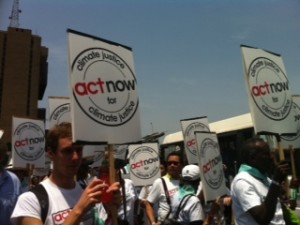


 Seeking Justice and Reconciliation in this season of Advent: This month,
Seeking Justice and Reconciliation in this season of Advent: This month, 
 In early November, Lutheran Advocacy Ministry-NM hosted our annual advocacy conference at St. Timothy’s Lutheran Church in Albuquerque. Almost 100 advocates from around New Mexico attended. A number of Lutherans traveled over 600 miles round trip to participate, coming from Las Cruces and from Alamogordo. All of the current volunteers from the Border Servant Corps, a border ministry of Peace Lutheran Church in Las Cruces, attended. Pr. David Vásquez, currently a campus pastor at Luther College and upcoming president of Pacific School of Religion, was the featured speaker and lead participants in two bible study sessions relating to faith and immigration. Breakout session topics included hunger in NM, the importance of early childhood education, local immigration issues and the 2015 LAM-NM Advocacy Agenda. The conference was attended by many of our ecumenical and interfaith partners, including Presbyterians, Methodists, Roman Catholics, Episcopalians, Unitarians and others.
In early November, Lutheran Advocacy Ministry-NM hosted our annual advocacy conference at St. Timothy’s Lutheran Church in Albuquerque. Almost 100 advocates from around New Mexico attended. A number of Lutherans traveled over 600 miles round trip to participate, coming from Las Cruces and from Alamogordo. All of the current volunteers from the Border Servant Corps, a border ministry of Peace Lutheran Church in Las Cruces, attended. Pr. David Vásquez, currently a campus pastor at Luther College and upcoming president of Pacific School of Religion, was the featured speaker and lead participants in two bible study sessions relating to faith and immigration. Breakout session topics included hunger in NM, the importance of early childhood education, local immigration issues and the 2015 LAM-NM Advocacy Agenda. The conference was attended by many of our ecumenical and interfaith partners, including Presbyterians, Methodists, Roman Catholics, Episcopalians, Unitarians and others. LAM-NM director, Ruth Hoffman has been busy attending interim legislative committees as they work toward the 2015 legislative session. The committees are preparing legislation for consideration during the session. Ruth testified at the most recent meeting of the Economic & Rural Development Committee about the Individual Development Accounts program and need for increased funding for that low-income matched savings account program.
LAM-NM director, Ruth Hoffman has been busy attending interim legislative committees as they work toward the 2015 legislative session. The committees are preparing legislation for consideration during the session. Ruth testified at the most recent meeting of the Economic & Rural Development Committee about the Individual Development Accounts program and need for increased funding for that low-income matched savings account program.
 Policy Updates: Faith Action Network’s (FAN) governing board approved our
Policy Updates: Faith Action Network’s (FAN) governing board approved our  shared his journey struggling with his daughter’s heroin addiction and moving from his personal experience to advocating for public policies. LSS Case Manager Mary Busick from Escanaba, MI tied together local youth homelessness, drug addiction and trafficking. LOPPW included an hour of advocacy exercise. Feedback confirmed that it would be worthwhile to repeat the summit in other locations.
shared his journey struggling with his daughter’s heroin addiction and moving from his personal experience to advocating for public policies. LSS Case Manager Mary Busick from Escanaba, MI tied together local youth homelessness, drug addiction and trafficking. LOPPW included an hour of advocacy exercise. Feedback confirmed that it would be worthwhile to repeat the summit in other locations. Prison Reform for Youth: LOPPW’s director and Council Member Rev. Jay McDivitt met with Senator Jerry Petrowski’s legislative aid to encourage the senator to again present a bill supporting 17 year old offenders of non-violent crimes to be tried as juveniles.
Prison Reform for Youth: LOPPW’s director and Council Member Rev. Jay McDivitt met with Senator Jerry Petrowski’s legislative aid to encourage the senator to again present a bill supporting 17 year old offenders of non-violent crimes to be tried as juveniles.